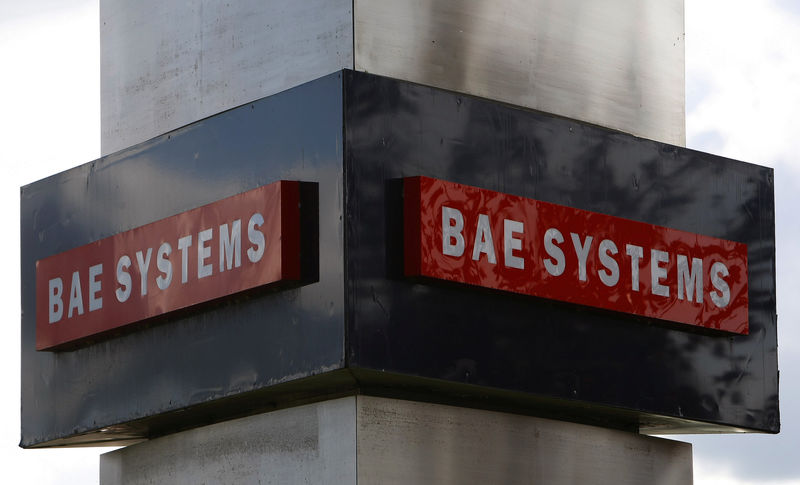UK defence spending is set to get a boost after Liz Truss was confirmed as the next Prime Minister, according to analysts at Deutsche Bank (ETR:DBKGn), spelling good news for Rolls-Royce (LON:RR) and BAE.
Truss pledged to increase UK's defence budget to 3% of gross domestic product (GDP) from 2% as part of her campaign
In real terms, that would equate to a roughly £27bn increase in spending, with the current budget believed to be in the region of £54bn.
Of course, an increase in the budget “could be a structural positive for UK defence stocks” according to Deutsche Bank, in particular big hitters like Rolls-Royce and BAE.
However, there may be a case for some companies that wouldn’t traditionally be seen as defence stocks to also get a boost, as war moves on from feet on the ground to eyes behind a screen.
According to a survey by Venafi, a cybersecurity company, 77% of security leaders believe the world is in a perpetual state of cyber warfare, while 82% of the 1,100 questioned believe geopolitics and cybersecurity are now “intrinsically linked.”
Where is the current defence budget spent?
A recent report from the Ministry of Defence reported capital expenditure accounted for nearly a third of defence spending for the year ended 31 March 2022 or almost £15bn.
Capital expenditure refers to the money spent on acquiring or maintaining fixed assets, such as equipment.
Service personnel was the second largest expenditure at £10.3bn, followed by equipment support at £7.5bn.
Where will this extra money go?
According to a think tank report quoted in the BBC, a 1% boost in defence spending would mark the biggest rise in defence expenditure since the early 1950s and equate to a 40,000 military personnel increase.
But where exactly will this extra money go?
Russia’s war on Ukraine would suggest that a sizeable portion of the new budget would go towards beefing up cybersecurity.
Cyberwarfare refers to using computer technology to disrupt a state or organisation, especially the deliberate attack of information systems for strategic or military purposes.
How much of the government’s current budget is spent on cybersecurity is unspecified in its own report, but it is a growing sector in the private arena and one that, as mentioned above, is a concern for security leaders.
The Department for Digital, Culture, Media and Sport (DCMS) found that the UK’s cyber security contributed £5.3bn to the UK economy in 2021, rising by a third from the previous year, the largest increase since the report began in 2018.
A report from the Telegraph suggested that global companies such as Amazon (NASDAQ:AMZN) and Microsoft (NASDAQ:MSFT) joined in to assist Ukraine on the cyber side of the battle.
Ukraine’s cybersecurity chief Victor Zhora said that support for cybersecurity “has been a huge help and assistance from our Western partners, and the support is continuous.”
“But since the cyber war goes on, and Russian aggressors identify new targets, new countries to attack, it seems to me that for Ukraine, which continues to be on the front line, the support is crucial and should be kept.”
Some of Truss's bumper war chest could also go towards what would be considered more ‘traditional’ military needs, such as increasing the number of foot soldiers, weapons and artillery.
Since the onset of war in Ukraine, shares in BAE are up by 27%, while France’s Thales has climbed 41% and Sweden’s Saab by 62%.
An immediate need to ramp up production to supply the Ukrainian frontline, which so far has relied heavily on the reserve stockpile of Western nations, has helped.
What stocks are likely to benefit from the increased spending?
Obvious stocks that would benefit from an increased budget are some of the heavy hitters in the defence sector, including aero engine group Rolls-Royce and BAE.
Should the government increase its spending in the cybersecurity sector, some of the big hitters there could also benefit.
One of the larger firms that is publicly listed, and could stand to benefit from the increased budget, would be Darktrace PLC.
Valued at over £3.5bn, the technology company specialises in cyber-defence and was upbeat on full-year guidance as the war in Ukraine increased demand from nations to bolster their cyber security protocols and infrastructure.
So cybersecurity might win out when it comes to the extra £27bn, but however the money is handed out the days of defence companies being out in the investing cold look over, possibly for good.
